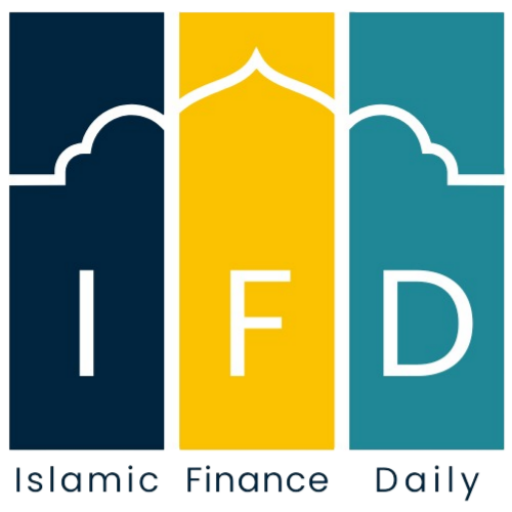Table of Contents
ToggleIntroduction
Islamic business financing is a growing segment of the global financial industry, rooted in the principles of Shariah (Islamic law). Unlike conventional financing, it prohibits interest (riba), promotes risk-sharing, and emphasizes ethical investments. As the demand for ethical and sustainable finance increases, Islamic business financing offers an alternative model that aligns with both religious values and sound economic principles.
Core Principles of Islamic Business Financing
Islamic business financing operates on key principles derived from the Quran and Hadith:
- Prohibition of Riba (Interest): Earning through interest is strictly forbidden. Instead, profit-sharing models are encouraged.
- Risk Sharing: Parties involved share both profits and losses, fostering a partnership approach.
- Asset-Backed Financing: Transactions must be backed by tangible assets, avoiding speculative activities.
- Ethical Investments: Investments in industries like alcohol, gambling, and weapons are prohibited.
- Transparency and Fairness: Contracts must be clear, ensuring justice and equity for all parties involved.
Types of Islamic Business Financing
Mudarabah (Profit-Sharing Partnership): In this arrangement, one party provides the capital (rab-ul-maal), while the other manages the business (mudarib). Profits are shared according to a pre-agreed ratio, but losses are borne solely by the investor unless caused by the manager’s negligence.
Example: Many Islamic venture capital firms use mudarabah to fund startups, where investors provide capital, and entrepreneurs manage the operations.
Musharakah (Joint Venture): Both parties contribute capital and share profits and losses proportionally. This model is commonly used in large projects, real estate, and joint business ventures.
Example: The Dubai Islamic Bank has financed numerous real estate projects using musharakah, where both the bank and developers share ownership and profits.
Murabaha (Cost-Plus Financing): This is a sale contract where the financier buys an asset and sells it to the client at a marked-up price, with payment deferred. It’s widely used for purchasing goods, machinery, and property.
Example: Banks like Bank Islam Malaysia offer murabaha-based financing for SMEs to purchase equipment.
Ijara (Leasing): Ijara is similar to leasing, where the bank buys an asset and leases it to the client. The ownership remains with the bank, while the client pays rent.
Example: Qatar Islamic Bank uses ijara to finance vehicles and equipment for businesses.
Istisna (Manufacturing Financing): This contract is used for construction and manufacturing projects. The financier pays the manufacturer to produce goods, which are delivered at a future date.
Example: Islamic banks in the UAE use istisna for financing large infrastructure projects like bridges and roads.
Comparison Between Islamic and Conventional Business Financing
| Aspect | Islamic Financing | Conventional Financing |
|---|---|---|
| Basis | Shariah principles | Interest-based |
| Interest (Riba) | Prohibited | Allowed |
| Risk Sharing | Shared between parties | Mostly borne by the borrower |
| Asset Backing | Mandatory | Not always required |
| Ethical Considerations | High, avoiding haram industries | No specific ethical restrictions |
| Speculation (Gharar) | Prohibited | Allowed |
Benefits of Islamic Business Financing
- Ethical and Sustainable: Promotes investments in socially responsible projects.
- Risk Mitigation: Shared risks encourage careful project evaluation.
- Financial Inclusion: Accessible to businesses in Muslim-majority regions and beyond.
- Stability: Asset-backed financing reduces the risk of financial bubbles.
Challenges in Islamic Business Financing
- Complexity of Contracts: Shariah-compliant contracts can be more complex than conventional ones.
- Limited Awareness: Many businesses are unaware of Islamic financing options.
- Regulatory Differences: Varying regulations across countries can complicate cross-border financing.
- Standardization Issues: Lack of uniform Shariah interpretations can create inconsistencies.
Real-Life Examples of Islamic Business Financing
- Akhuwat Foundation (Pakistan): Provides interest-free microloans to small entrepreneurs, promoting financial inclusion and poverty alleviation.
- Al Baraka Banking Group (Bahrain): Finances large-scale commercial projects using musharakah and ijara models.
- Tabung Haji (Malaysia): Manages savings for Hajj pilgrims through Shariah-compliant investments, supporting both religious obligations and economic development.
The Future of Islamic Business Financing
With the global economy shifting towards ethical and sustainable finance, Islamic business financing is poised for growth. Innovations in fintech, increasing demand for ethical investments, and greater regulatory support are driving expansion. Collaborations between Islamic financial institutions and conventional banks are also fostering broader acceptance.
Conclusion
Islamic business financing offers a robust, ethical alternative to conventional finance, grounded in principles that promote fairness, transparency, and social responsibility. As businesses and investors increasingly seek sustainable financial solutions, Islamic financing models provide valuable opportunities for growth, inclusion, and economic stability. Its real-world applications demonstrate that Shariah-compliant finance is not only viable but also beneficial for diverse economic contexts.



